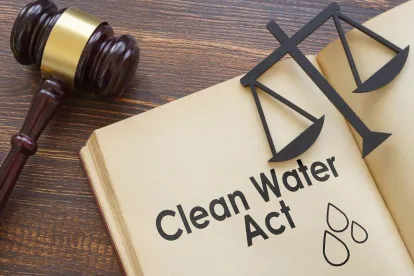The United States Supreme Court isn't done with the Clean Water Act and EPA's interpretation of it. This month the City and County of San Francisco asked the nation's highest court to overturn a split Ninth Circuit Court of Appeals decision upholding an EPA NPDES permit that contains two general narrative prohibitions on discharges from the Oceanside combined sewer system and wastewater treatment facility. One of those prohibitions was of discharges from the facility that “cause or contribute to violations of applicable water quality standards.”
Fifteen industry groups, including the American Chemistry Council, the American Farm Bureau Foundation and the United States Chamber of Commerce, are joined by a dozen or so water supply and conservation associations, including the National Association of Clean Water Agencies, and more than a dozen municipal water and sewer providers, including the Boston Water and Sewer Commission, in asking the Supreme Court to overturn the Ninth Circuit decision.
I'll be shocked if the Supreme Court doesn't answer the call.
First, you may recall that the Supreme Court's two most recent Clean Water Act decisions, in Hawaii Wildlife Fund v. Maui and Sackett v. EPA, were decisions overturning decisions by the Ninth Circuit.
Second, anytime you have everyone from the American Chemistry Council to the American Farm Bureau to the Boston Water and Sewer Commission saying that EPA and any court got something wrong, there's a pretty good chance that EPA is going to end up on the short end of the stick.
Third, just like the appellants and the dozens of amici say, the Ninth Circuit's decision flies in the face of fifty years of precedent relating to the permitting of discharges of pollutants to Waters of the United States through the issuance of NPDES permits.
As the wastewater and stormwater agencies and municipalities say in their brief to the Supreme Court, the way the NPDES program is supposed to work is that if an EPA permit writer determines that a discharge “will cause, have the reasonable potential to cause, or contribute to an excursion above any State water quality standard" then the permit writer is supposed to develop "discharge-specific effluent limitations [for that discharge] at levels that are “derived from, and compl[y] with all applicable water quality standards.”
Those effluent limitations provide what is known as a “permit shield” in that a NPDES permit holder knows that it is compliant with the law if it is meeting those specific effluent limitations.
Two Judges of the Ninth Circuit held that it is an acceptable “backstop” to also prohibit the permit holder from causing or contributing to excursions of much more vague water quality standards.
That would be imaginative at best even if it weren't for the opinion of the Supreme Court last year in Sackett. But, it was less than a year ago that Justice Alito delivered our nation's highest court's opinion in that case from the Ninth Circuit rejecting EPA's (and the Ninth Circuit's) interpretation of the term “Waters of the United States” in the Clean Water Act as “hopelessly indeterminate” in the face of the due process requirement that penal statutes be defined "‘with sufficient definiteness that ordinary people can understand what conduct is prohibited’ and ‘in a manner that does not encourage arbitrary and discriminatory enforcement.’”
There is no way that “cause or contribute to violations of applicable water quality standards” is any less “hopelessly indeterminate” than what was EPA's definition of “Waters of the United States” before the Supreme Court stepped in. And the penalties, and opportunities for citizen suits, are as potentially draconian for violations of NPDES permits as they are for violations of “dredge and fill” permits of the sort that EPA would have required of the Sacketts.
And that's why I'm expecting that we'll be reading another Supreme Court opinion overturning another Ninth Circuit Clean Water Act opinion later this year.
“Permittees can spend millions or even billions of dollars designing and building wastewater treatment, storage, and management systems in reliance on their permits. Vague permit requirements undercut those investments and leave permittees vulnerable to ‘crushing consequences,’ despite their best efforts at compliance,” the industry coalition said, quoting the high court’s landmark CWA ruling last year in Sackett v. EPA.
https://insideepa.com/daily-news/backing-cert-industry-warns-cso-ruling-eviscerates-cwa-per




 />i
/>i

